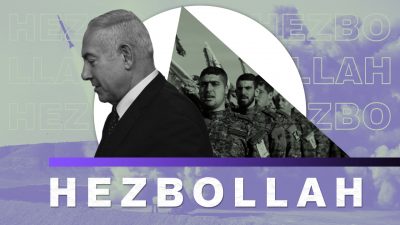Video: Hezbollah Shoots Down Israeli Drone over Lebanon

On September 9, Hezbollah announced that it had shot down an Israeli unmanned aerial vehicle over the village of Ramyeh in southern Lebanon. Hezbollah added that the UAV is now in its hands.
The Israeli Defense Forces (IDF) confirmed in a statement that the UAV had been lost claiming that it was “on a routine mission in northern Israel” but somehow “fell into Lebanese territory.” Lt. Col. Jonathan Conricus, a spokesperson for the IDF, declined to comment on the specific nature of the UAV’s activities. However, he said that “there is no risk of breach of information”.
The development followed claims by the IDF that overnight into September 9 Shia militias operating under command of the Qods Force of Iran’s Islamic Revolutionary Guard Corps launched several rockets towards Israel from the countryside of the Syrian capital, Damascus.
On September 8, several explosions rocked near the Syrian city of Al Bukamal, located on the border with Iraq. The incident reportedly happened in the area where Iranian-backed militias are deployed. Pro-Israeli media outlets immediately speculated that the explosions were a result of Israeli strikes and killed at least 18 Iranian-backed fighters. No evidence to confirm these claims was provided. The situation remains unclear.
The Israeli military political leadership openly exploits the current tensions across the Middle East to achieve own political goals. In fact, Tel Aviv is interested in the existence of the so-called Iranian-Hezbollah threat because it helps to justify Israeli regional policy and gain more and more financial and military support from the Trump administration. In own turn, the Israeli attitude serves as a direct confirmation of the official rhetoric of Hezbollah and Iran regarding ‘the Zionist aggression’ in the region. Therefore, Iranian and Hezbollah influence on Shia groups across the Middle East are growing.
This may be compared to the conflict Syria, in which the US and Israel played an anti-Iranian card backing various radical groups and even striking supposed Iranian targets. Nonetheless, Iranian and Hezbollah positions in Syria were strengthened because of this policy. A new round of limited escalation in the region may lead to similar consequences.
*
Note to readers: please click the share buttons above or below. Forward this article to your email lists. Crosspost on your blog site, internet forums. etc.
Support South Front in its endeavors.
If you’re able, and if you like our content and approach, please support the project. Our work wouldn’t be possible without your help: PayPal: [email protected] or via: http://southfront.org/donate/ or via: https://www.patreon.com/southfront


